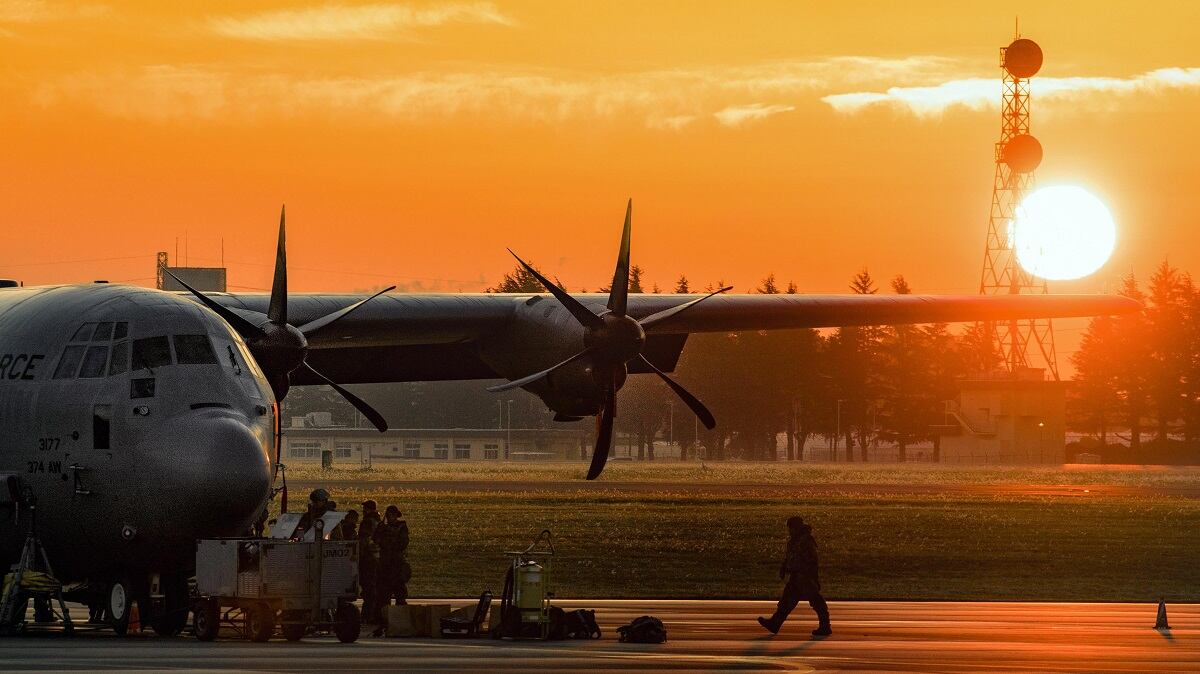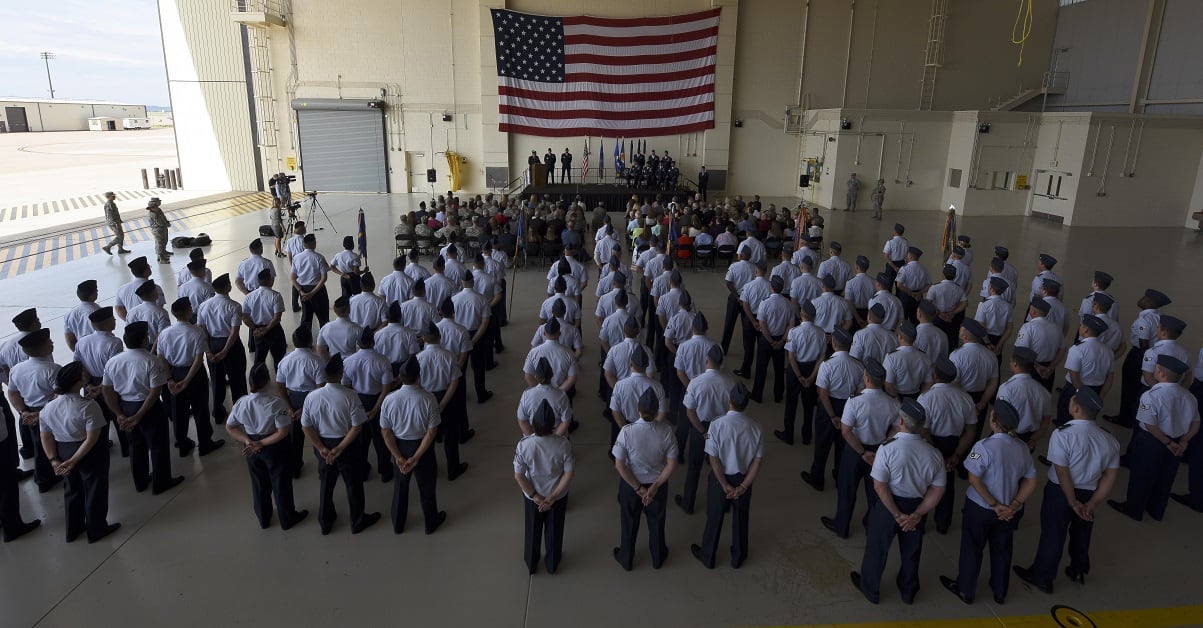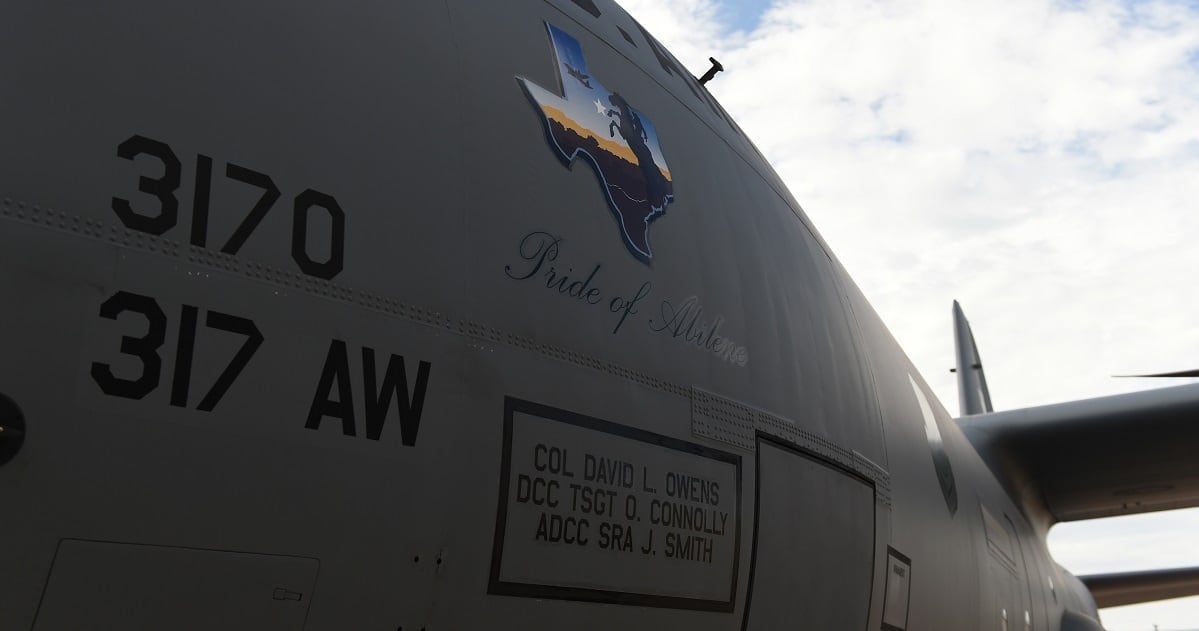Col. David Owens was fired from command of the 317th Airlift Wing at Dyess Air Force Base in Texas after an investigation outlined a repeated pattern of berating and ridiculing airmen under his command and toxic leadership.
A commander-directed investigation, dated April 4 and obtained by Air Force Times through the Freedom of Information Act, found that at times, Owens' anger and intimidation of his airmen rose to the level of inflicting "psychological abuse that degraded or insulted members of his command.”
The investigation also substantiated allegations that Owens had “failed to establish and maintain a healthy command climate” at the 317th by “displaying unreasonable anger of physical aggression ... upon receiving unexpected or unwelcome news from subordinates” and “regularly subjecting ... commanders and senior enlisted personnel to public ridicule at weekly leadership meetings for perceived shortcomings or failures to perform.”
Owens took command of the 317th when it was stood up in July 2017, and was fired in May. A release at that time from the 18th Air Force at Scott Air Force Base in Illinois said an investigation substantiated allegations that he had created a “toxic environment” and was relieved “due to the creation of an unhealthy work environment.” The 18th also said Owens had “inappropriately degraded and insulted individuals.”
But the redacted report outlines the extent to which Owens' abusive leadership style caused the command structure to break down. His “toxic conduct,” as the report called it, “severed [his] relationship with the senior” non-commissioned officers in the wing, and left squadron commanders “only willing to follow him because of fear.”
Owens is now one of the senior directors of operations with the 618th Air Operations Center at Scott, and does not have airmen assigned under him, the 18th said.
Air Force Times sought comment on the report from Owens, which the 18th forwarded to his defense counsel, but there has been no response.
RELATED

Airmen at the 317th quickly grew to dread Owens' mercurial moods, furious outbursts over relatively minor bad news or delays, and his tendency to single out and publicly ridicule airmen. The report said that Owens had “good days,” when he was talkative and welcoming, and “bad days,” when he would become angry or frustrated, and airmen would avoid him.
But even on good days, the wing front office was so quiet you could “hear a pin drop” and staffers were constantly “walking on eggshells,” not knowing when his short temper would erupt. He frequently swore and slammed his fist on desks at minor setbacks like name patches not arriving on time, building updates taking too long, or trees by the headquarters building not being trimmed fast enough, the report said.
Owens once even “became visibly angry” after birds defecated on his personal vehicle, the report said.
‘OVER THE TOP MAD’
Staff in the 317th started to find ways to work around his quick anger. When the name tapes were taking longer than expected, though airmen tried their best and ordered them with expedited shipping, he became “over-the-top mad” and “pissed off” and told his executive officers “If I have to order this s--- myself, I will do it.” Things became so bad that a civilian employee took it upon herself to present updates about the name tapes to Owens, believing he was less likely to yell at her because she was a civilian.

In another incident, Owens last September chewed out a squadron commander for not providing him information about a transgender airman in the wing. The unidentified squadron commander tried to tell him that releasing that information might violate the airman’s medical privacy rights under the Health Insurance Portability and Accountability Act, but Owens cut him off. In a one-way conversation, Owens told the squadron commander to “stop talking” and “put himself in receive mode” and “just give the information and move forward.”
Last October, the report said, another unidentified airman tried to speak privately with Owens about how he treated commanders at staff meetings. But before he could raise those concerns, Owens kicked his feet up on his desk and told the airmen his attitude in daily meetings was “s----y” and “f---ing terrible” and that he “sucked,” the report said. Owens also said he knew the airman was upset but that he “did not care and was not going to ask him why he was upset.”
That airman told investigators he became physically angry, which he said had never happened on the job during his 25 years on active duty, and left the meeting “completely demoralized." He felt like that meeting broke his spirit, he said, and he didn’t sleep for two days. The stress had become overwhelming.
Owens also launched into a profane tirade last October after a group superintendent — who was also a loadmaster — didn’t show up at a leadership offsite meeting because he was flying a hurricane relief mission. The officer who approved that group superintendent’s participation in that relief mission told Owens he hadn’t “put two and two together” and realized it would cause him to miss the offsite.
“You need to fix stuff like this and you need to put two and two together if you want me to stay out of your s---,” Owens told the unnamed airman.
At that Oct. 11 offsite, Owens — who was in a bad mood because of the group superintendent’s absence — singled out the newest squadron commander and grilled him on the details of an AFI. Though participants in the offsite were given some “homework” in advance to review, nobody had been asked to brush up on that particular AFI.
As the new squadron commander struggled to answer Owens. “forceful and demanding” questions on the AFI, attendees became uncomfortable, and felt Owens was disrespectfully and unprofessionally bullying him and treating him as a “whipping boy.”
THE BREAKING POINT
The breaking point for many airmen came during a retirement ceremony last November. The retiring airman wanted to have a Presidential Certificate of Appreciation from former President Barack Obama presented as part of his ceremony because members of his family had worked for then-Sen. Obama in Chicago years ago and it would have meant a lot to his family.
The day of the ceremony, Owens learned about the airman’s plans to include the presentation of a certificate from Obama, but not current President Trump. Owens felt this was disrespectful to Trump, and assumed the airman was planning to make the ceremony “a political statement” that would make Owens “look like a fool.”
“Colonel Owens became unreasonably angry and was concerned that someone would video the ceremony and it would be put on YouTube or [the unofficial Air Force news blog] John Q. Public and that Dyess Air Force Base would be dragged into a political conversation,” the report stated. “Colonel Owens displayed a level of anger that was unwarranted and the situation did not require the amount of stress experienced.”
Owens didn’t care why the retiring airman wanted the Obama certificate, the report said, and demanded another unidentified airman “unf---” the situation by telling the retiring airman he would have a certificate from Trump presented, or no presidential certificate at all.
With that order in hand, the unidentified airman raced to the ceremony location, just a few minutes before it was to begin, and told the retiring airman he wasn’t allowed to have just the Obama certificate presented. That retiring airman became very upset at having to change his retirement script at the last minute, and was extremely disappointed because the certificate would have meant a lot to his family.

The unidentified airman told investigators he felt the blow-up let the retiring airman down, ruined his retirement, and potentially tainted his last day in uniform. The airman said his “biggest disappointment” was that he was unable to de-escalate Owens' stress over the situation before coming up with a solution.
That retirement ceremony was a “tipping point” and “catalyst” for conversations about Owens in the wing, the report said. Airmen began openly talking about their concerns that Owens had become toxic, and the overall command climate was breaking down. Airmen also discussed ways to possibly “mentor up” Owens and provide him feedback, if only he would receive it.
One unidentified airman was so upset about the retirement ceremony that he left his daughter’s birthday party to go to another airman’s house to discuss the problem. They agreed that Owens “had just lost the respect of the senior NCOs with regard to the command climate” and “severed his relationship” with them.
That following Monday, Owens stood by his decision about the retirement ceremony, and went on to disparage the retiree as not deserving of a retirement medal, and that he hadn’t done anything for the last six months.
Concerns about Owens continued to worsen, and some talked about how his leadership had become “toxic.”
An unidentified airman “expressed his concern that the leadership climate was breaking down,” the report said. “It had been stressed for some time, but the way things were going he was worried the command climate was breaking and the squadron commanders were no longer in a position where they wanted to follow Colonel Owens because they did not believe in his method to achieve his vision, and they were only willing to follow him because of fear.”
Owens appeared to realize things had gotten bad. He “clearly received” feedback about the situation from an unidentified airman, and ended up speaking with several different commanders individually, and even apologized to one airman for how he had treated him.
The report said that after that, his leadership and communication style noticeably changed for the better. But because things had been so bad for months, squadron and group leaders remained unconvinced that he had genuinely changed. The command teams wondered if he might revert to his former ways in the face of significant stress.
Several witnesses also feared the possibility of “disguised” or “calculated” retribution or reprisal from Owens for complaining or talking to investigators.
“Colonel Owens has severed the trust with the majority of commanders and senior NCOs in the wing,” the report said. “Despite Colonel Owens' outward appearance of change in leadership and communication style, the relationships between Colonel Owens and subordinate command teams may not be repairable because of his consistent toxic conduct between July 2017 and December 2017. It does not appear that anyone in the wing will be directly insubordinate, but the majority of subordinate leaders still don’t trust him and are walking on eggshells because of his demonstrated unpredictability, short temper and unprofessional reactions.”
Stephen Losey is the air warfare reporter for Defense News. He previously covered leadership and personnel issues at Air Force Times, and the Pentagon, special operations and air warfare at Military.com. He has traveled to the Middle East to cover U.S. Air Force operations.




